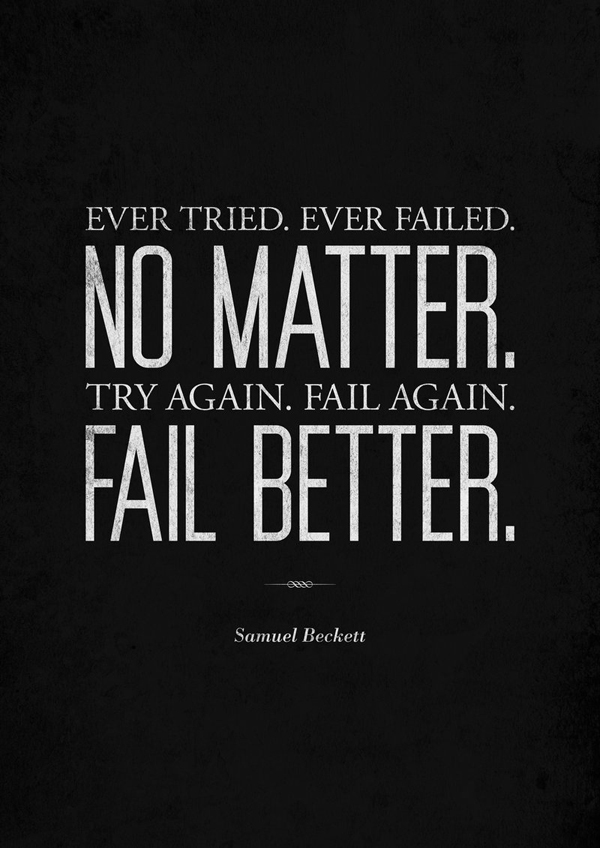
We live in a culture where failure is seen as something to be avoided at all costs. But just as children should get chickenpox and be allowed to play in mud so a bit of bacteria won’t harm them later on, we must experience small failures to ready ourselves for the big stuff that can, and definitely will, go wrong.
Frankly, it’s a kindness to fail now. I’ve seen so many people – who have only ever known a charmed, secure, smoothly run life – go into full meltdown the moment even the tiniest thing has gone awry. Failure is not only inevitable, it’s essential.
The only true failure is not to learn from it. Failure is the most powerful way to learn lessons, evaluate what it is you really do and don’t want, and feel the incomparable sense of self-confidence in knowing you can pick yourself up off the floor, out of tear-sodden pyjamas and back into the world, harder and stronger than before.
There’s no use telling yourself never to fail, so see failure as an opportunity to make things right. It’s a crucial life skill.
Some are broken by failure and others make the best of it. A quick inventory of my closest friends demonstrates that I can only truly be close to the latter type. All have messed up, made the wrong decisions to dire consequences or just had really bad luck.
But none of us has let it define us; we’ve all picked ourselves back up and vowed to do differently next time failure comes around – because we know it always will.
Fear of failure is far more debilitating than failure itself. Trying to avoid failing stops us from succeeding, because no worthwhile success comes without risk. It’s invariably a case of the bigger the reward, the scarier the task. In denying ourselves the opportunity to fail, we’re actually stopping ourselves from experiencing the pure, undiluted joy of true success. Not to take the plunge is the biggest failure of all because we only regret the things we didn’t do, not those we did.
Some failure is inevitable, but it’s never the beginning and end of your story unless you allow it to be.
“I have no regrets” is a phrase one hears often in everyday life, and I am generally mistrustful of anyone who lives theirs without ever admitting they wish they’d made another call. Who has lived such a flawless life that they don’t wish they’d done something differently? It’s the sort of throwaway cliché, much like “everything happens for a reason” (no it doesn’t, shush), spoken by people looking to live with as little personal responsibility and insight as possible.
My own regrets are infinite – from choosing to stay in a job way longer than I should have as it was a toxic environment, to making bad choices because I was an idiot, ignorant, young or unthinking. But my self-judgement over each of them has been essential to my principles and self-awareness thereafter.
Regrets are important in changing future behaviour and I’m not convinced anything does so as powerfully. They prompt you to do better next time, however insignificant they are in the broader scheme.
Instead of refusing to look backwards and harping on about living with “zero regrets”, we should give our regrets room for processing, without allowing them to overcome us.
Because ultimately, regrets should have a shelf life. Left to fester, they damage soul and body, taking away more than they bestow. There comes a point, after learning from our mistakes, when we must draw a line in the sand, forgive ourselves, pledge to do better and refuse to let life be governed by the past.